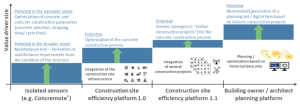WIPO-CNIPA Advanced Training Course on Management and Commercialization of Intellectual Property Assets 18.-29.10.2021 – Best Practice
The commercialization of intellectual property assets and with it the management of intellectual property as a whole, becomes more and more a global topic. Therefore, the World Intellectual Property Organization (WIPO) organized already in 2018 together with the National Chinese intellectual property administration (CNIPA) a training course on “Management and Commercialization of Intellectual Property Assets” to address the topic on a global stage. In 2021 the next event of the series is organized online by WIPO and CNIPA in cooperation with the Center for International Intellectual Property Studies (CEIPI) and the China Intellectual Property Training Center (CIPTC) between 18.-29.10.2021. It will be opened on Monday 18th October by LIU Jian, Deputy Director General of the International Cooperation Department of CNIPA, Yann Basire, Director General and Director of the French Department of CEIPI, and Tshimanga Kongolo, Head of the Professional Development Program of WIPO Academy.
The training course addresses the various global topics of IP management, such as technology management, IP Valuation, IP audits, IP portfolio management, IP commercialization strategies, technology transfer and licensing, IP marketing, and negotiations. The topics are addressed in the first week in lectures by worldwide experts on IP and in the second week in interactive discussion groups.
A special attention should be paid to the lecture on the topic of “IP Management in a Specific Industry: Best Practice”, which explains the digital transformation of a whole industry and the needs and opportunities of IP management, with the example of the building industry. The building industry undergoes a rapid change due to the opportunities of digital technologies, e.g. sensor technologies. One example here is the use of Concremote® by Umdasch Group Ventures and Doka to use innovative sensors for the determination of the earliest possible stripping time of formworks. This causes huge increases in efficiency, because the determination of the stripping time is not based anymore on the experience of the builders and the knowledge of the very individual local conditions of the building site, including the locally available resources for the concrete.
Cannot open the video? Please click: https://youtu.be/oPuowLGnu3c
Additional to that, the digital transformation offers even more potential of improvement. Not only a single construction site can be digitalized and optimized by the data taken by the sensors, but also multiple sites can be coordinated to profit from the learnings of the other sites. Finally, the data can be used in a whole planning platform solution to use the collected data also for the planning of future projects and the creation of digital twins of the planned buildings.




